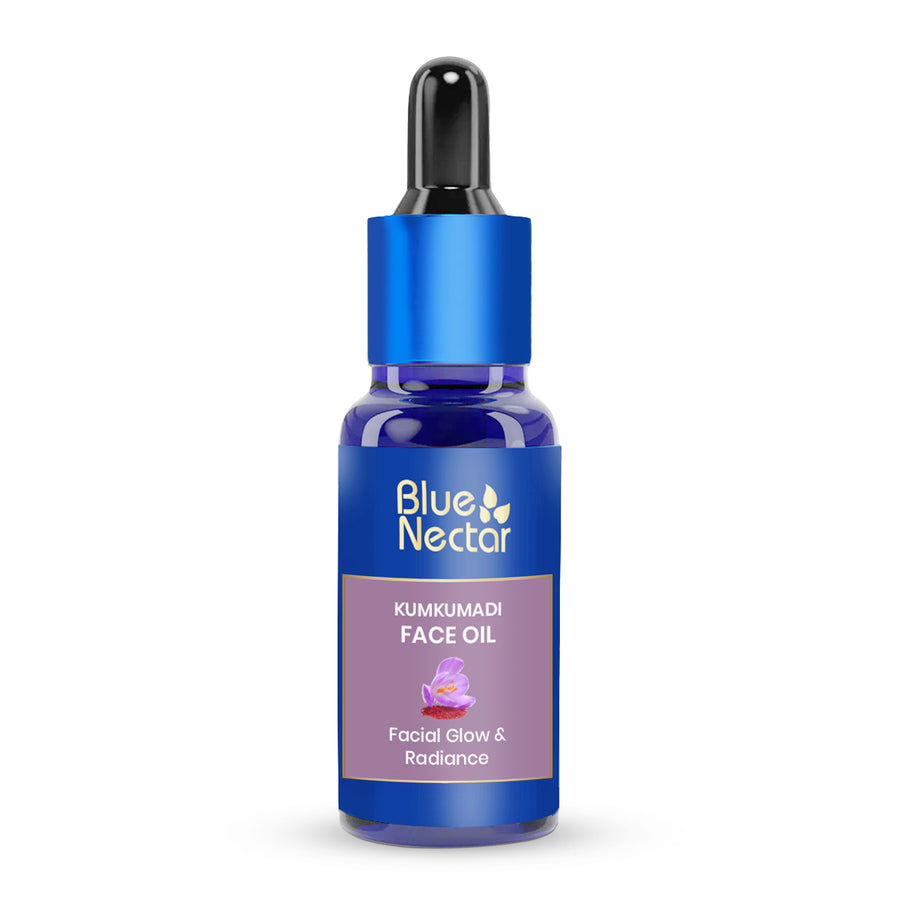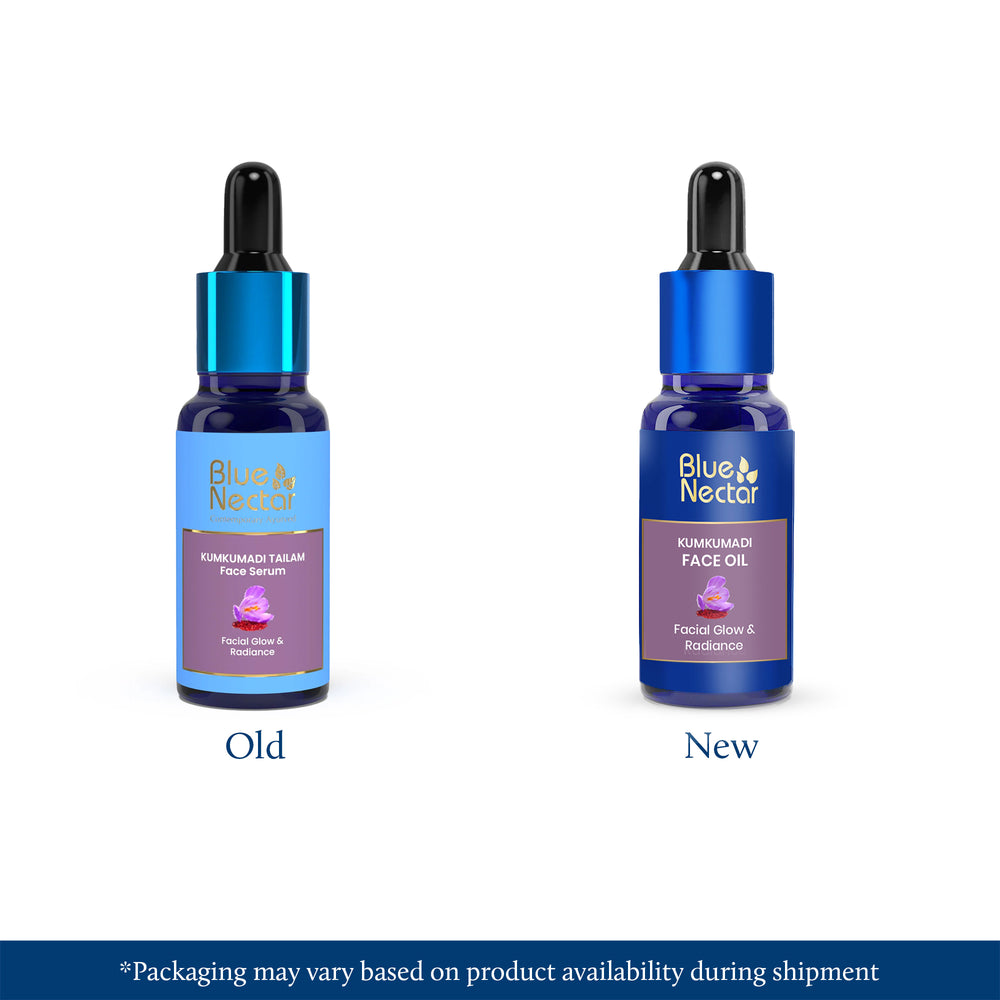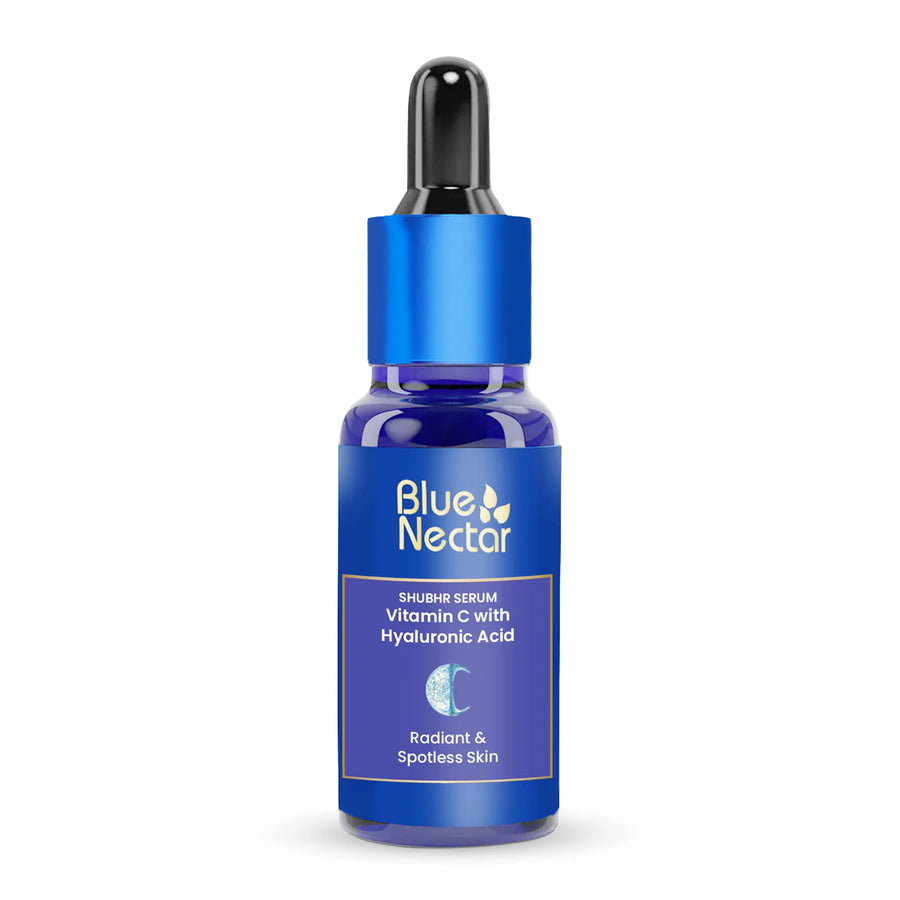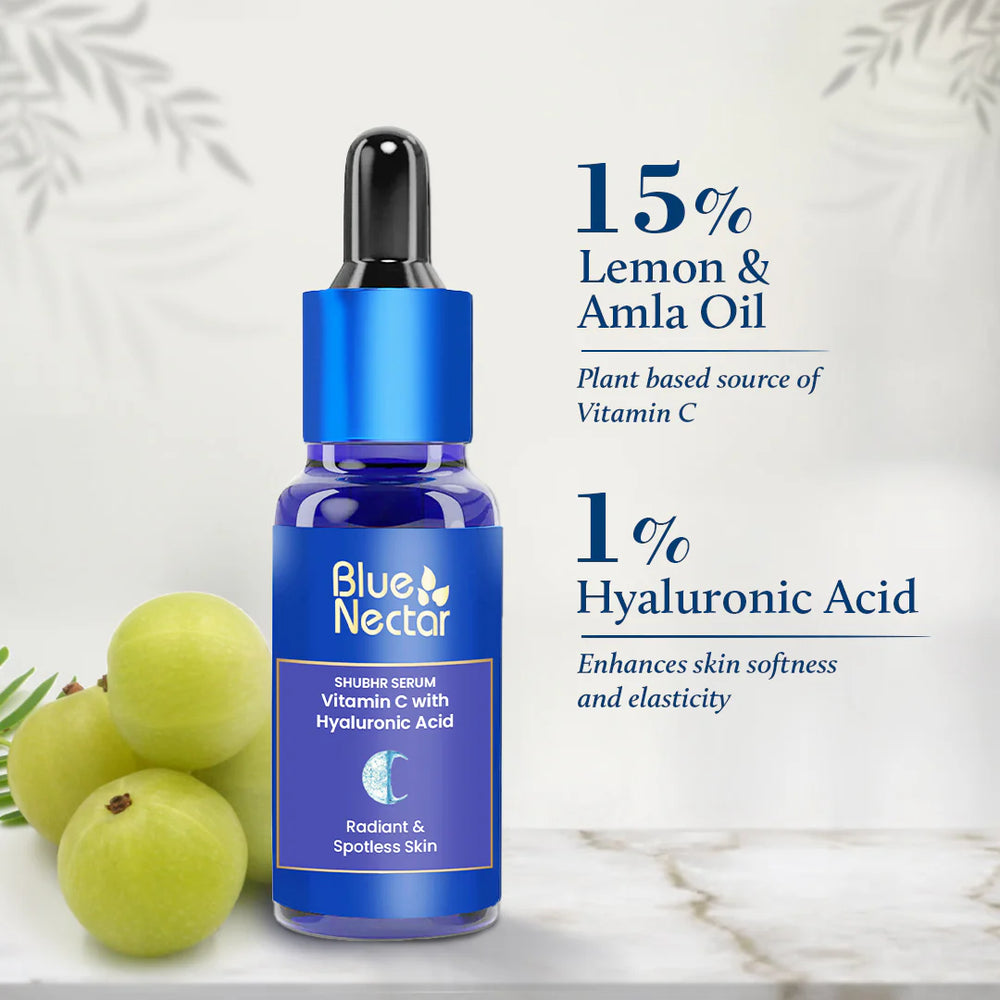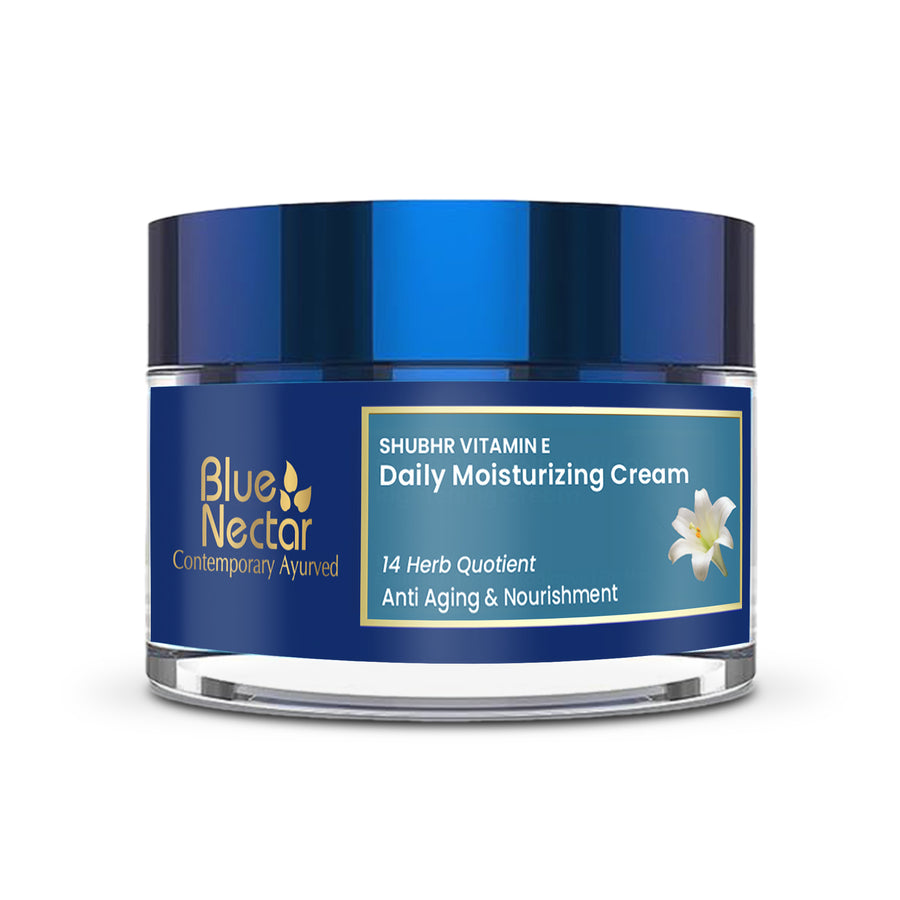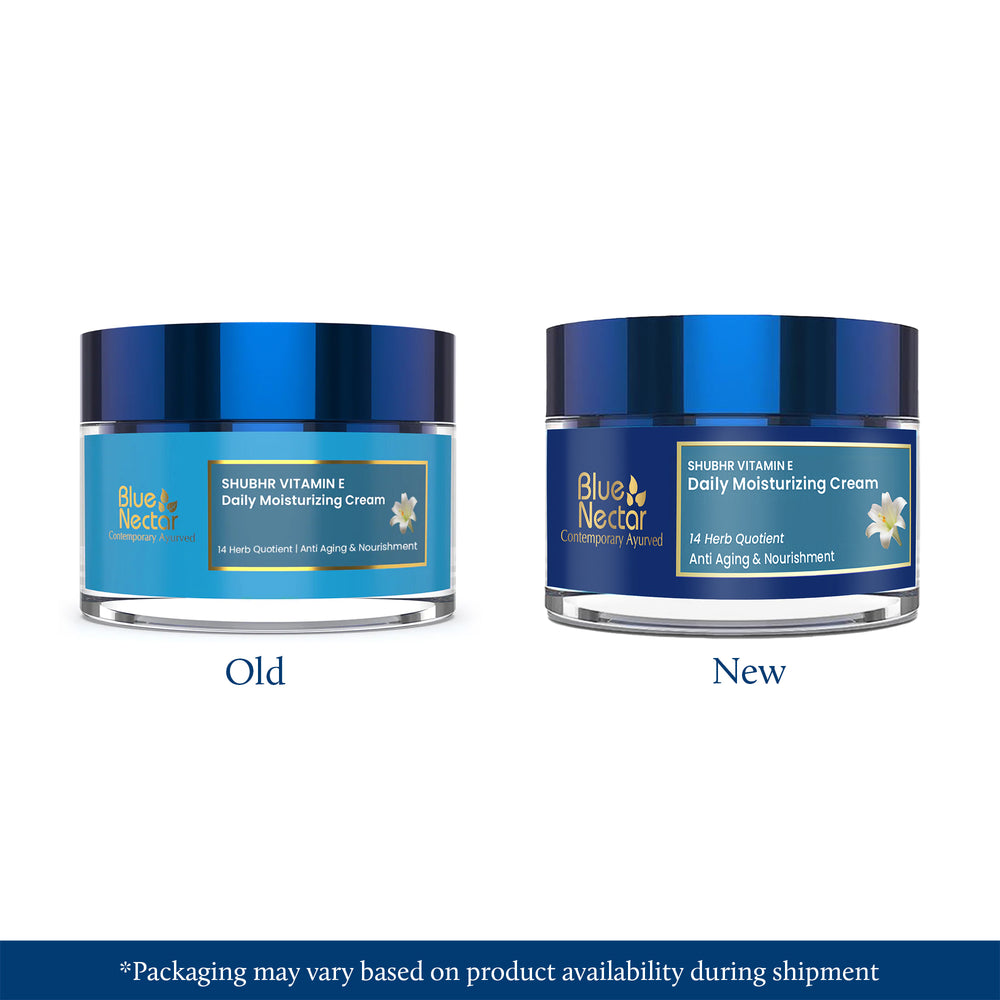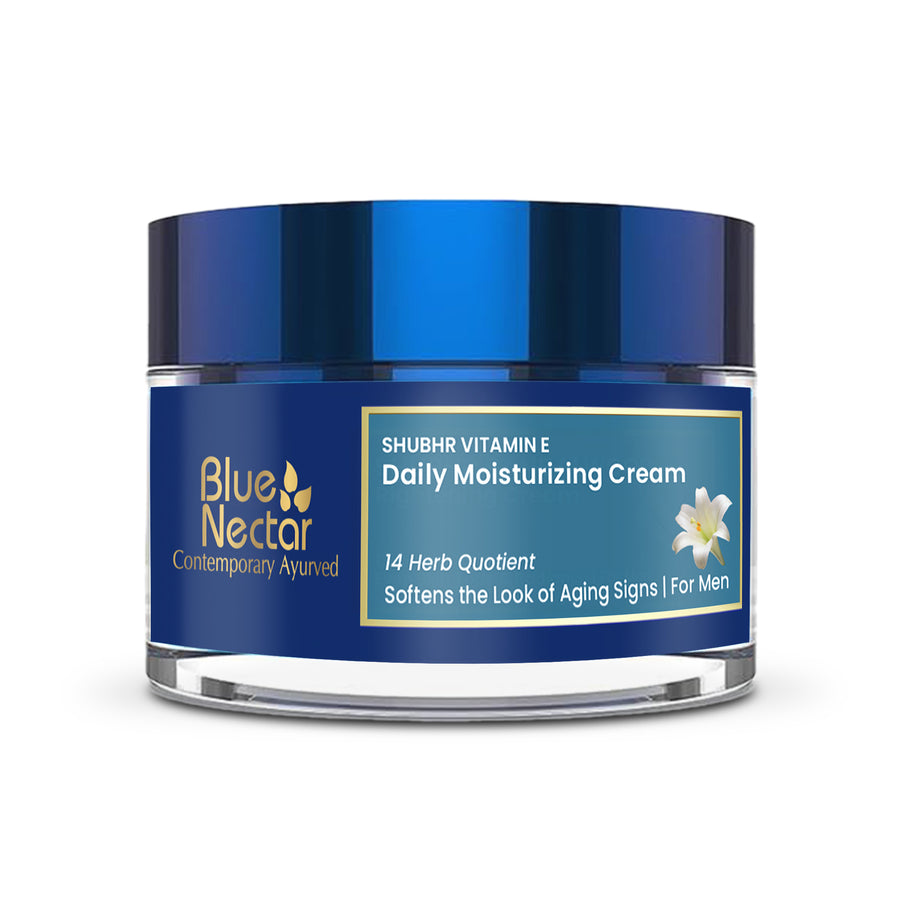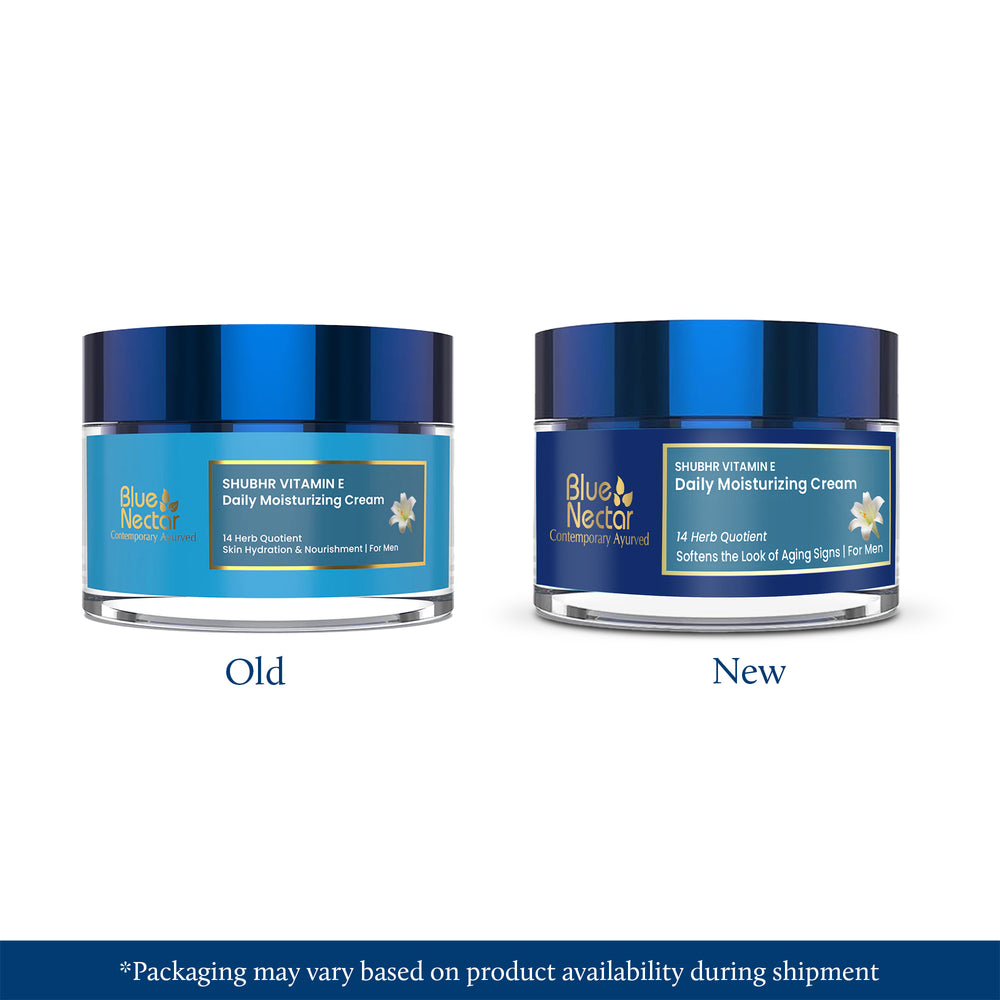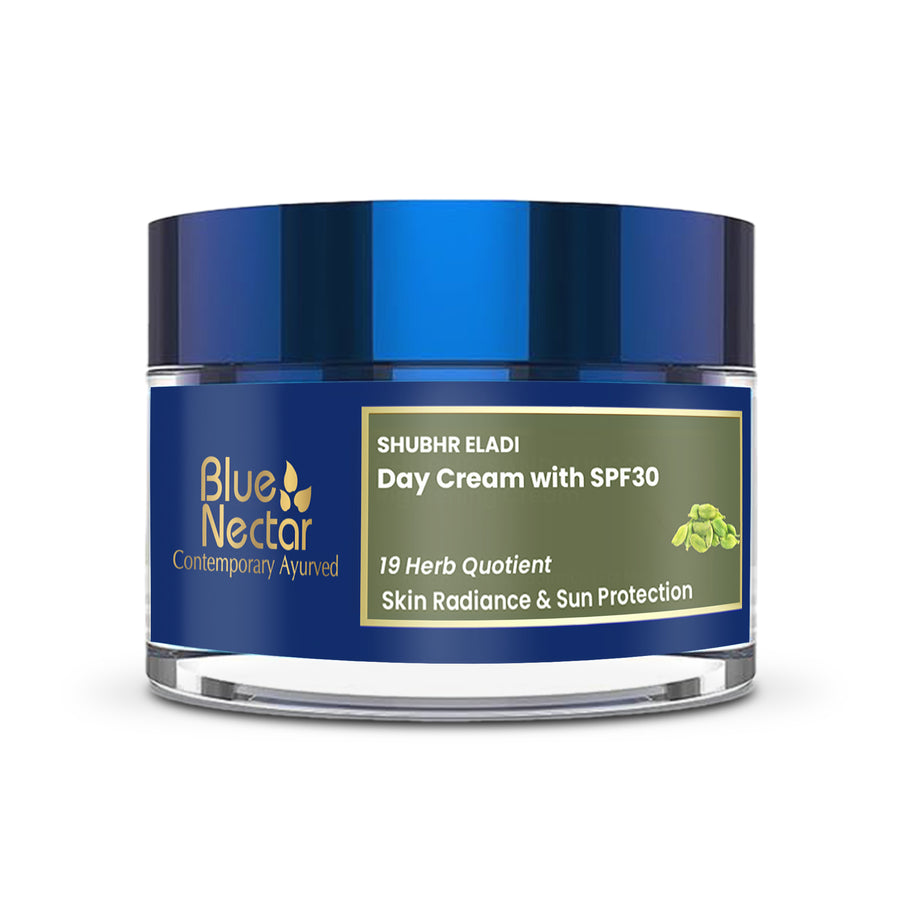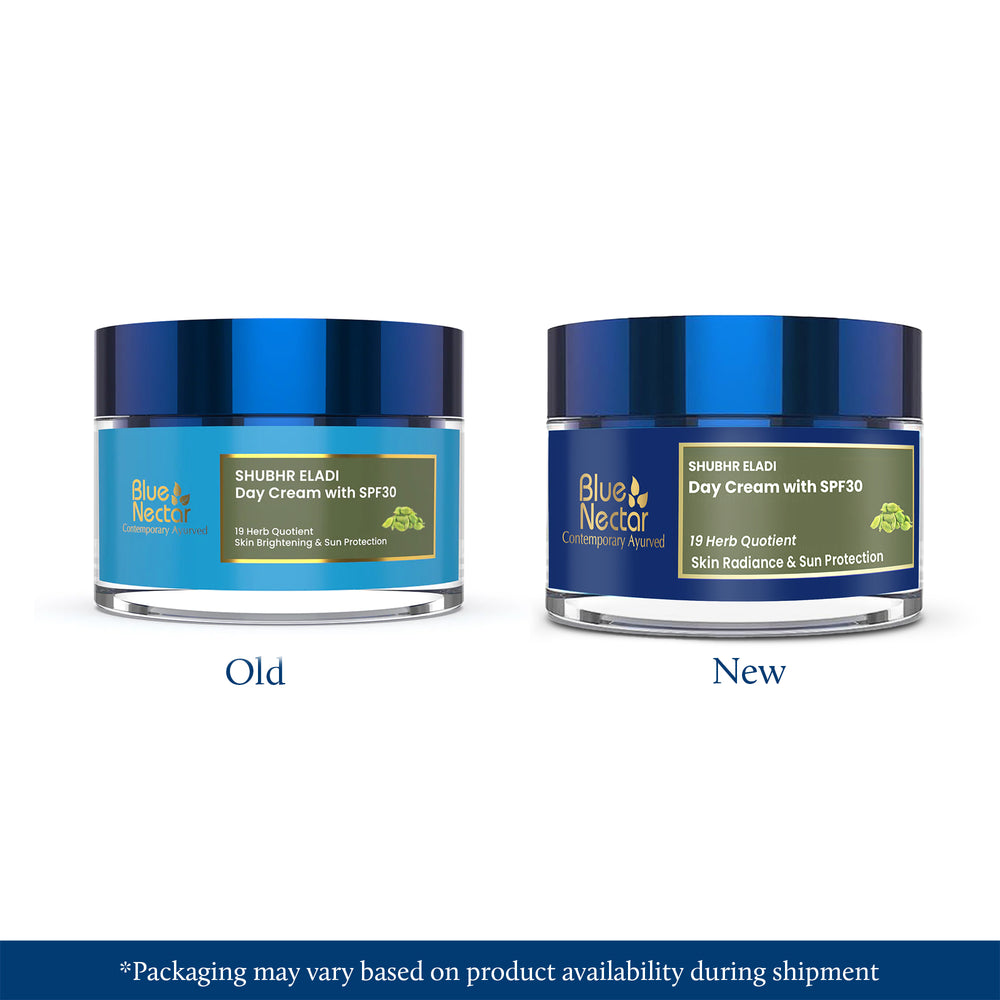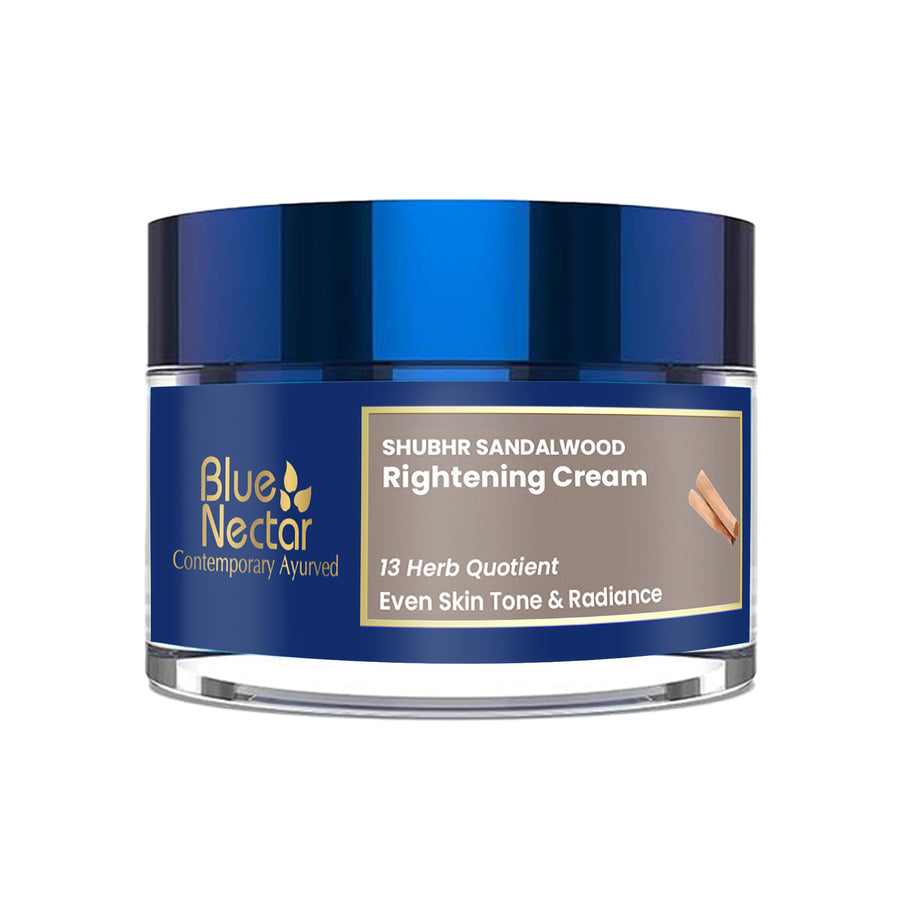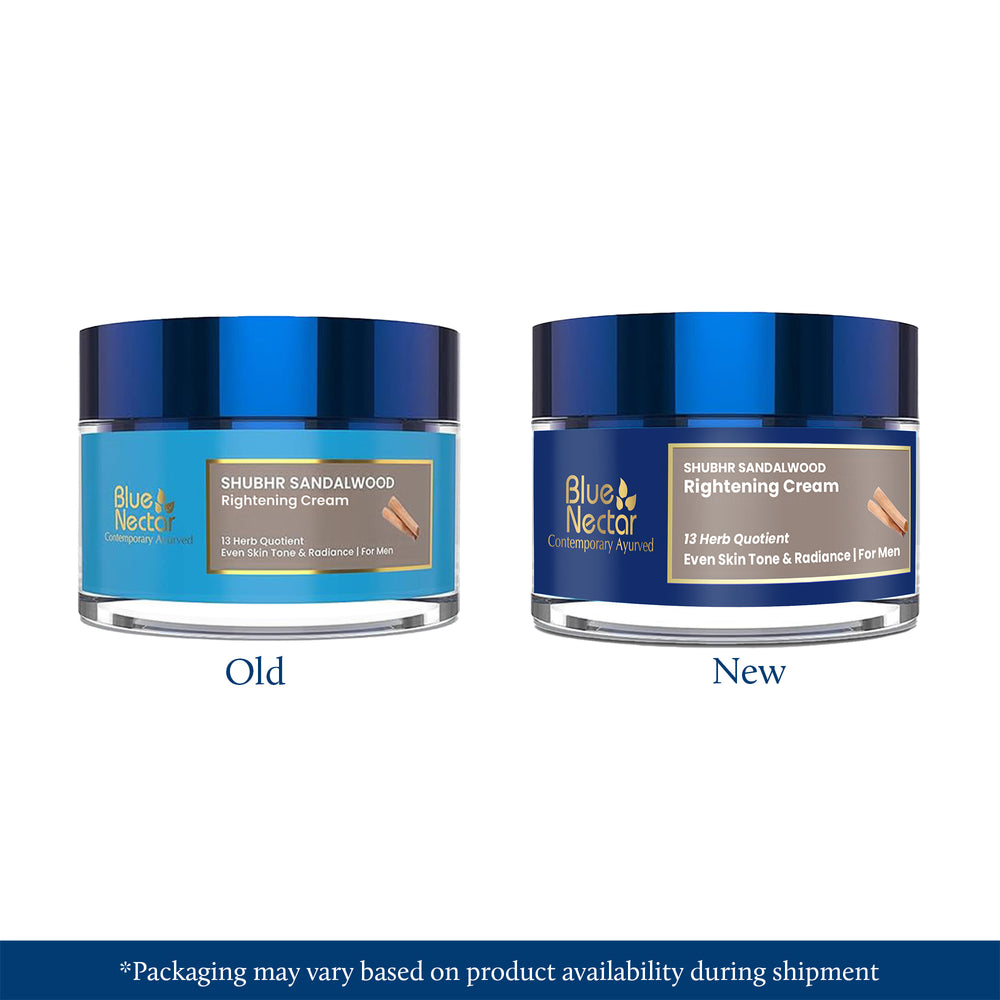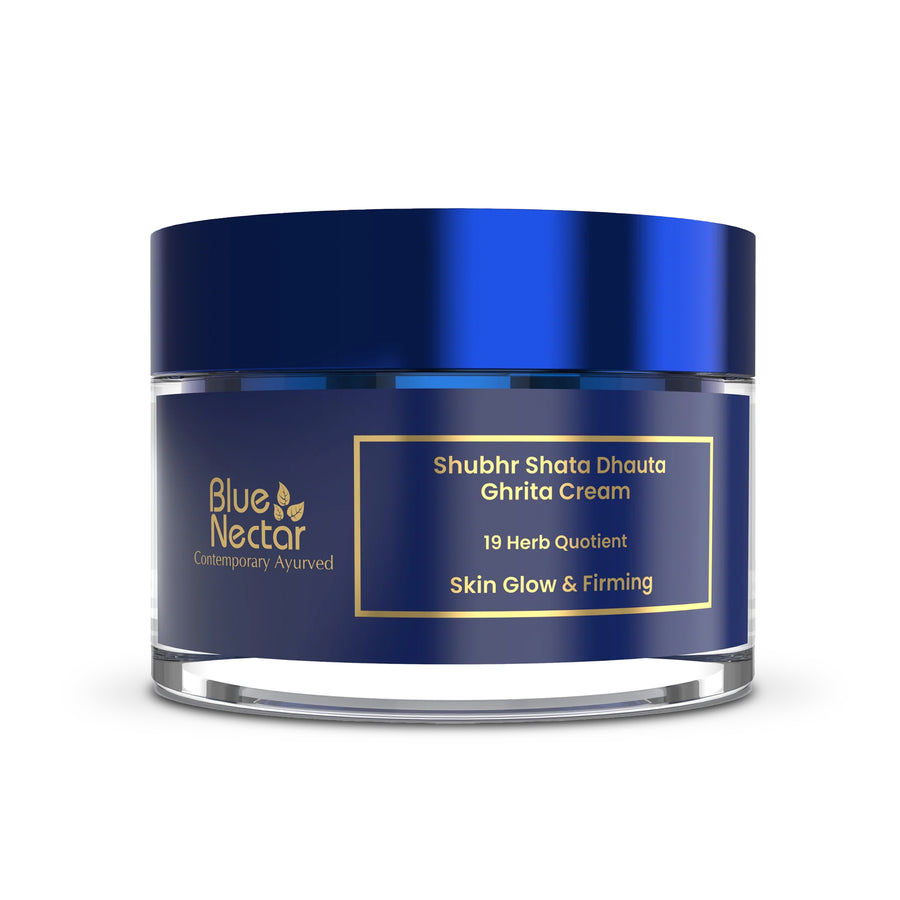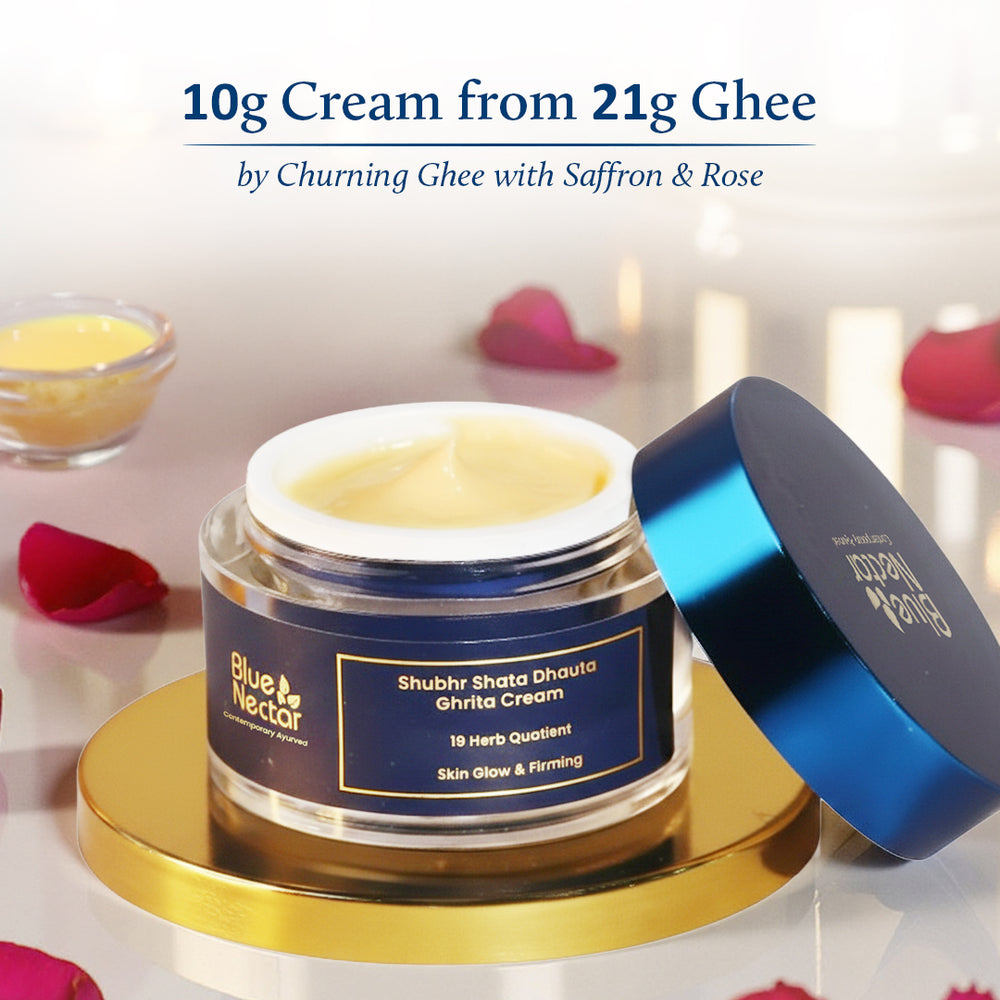1. What is the role of Face Oils in Ayurvedic Skin Care?
Facial oils are highly valued in Ayurveda for their ability to deeply nourish and balance the skin. Oils like Sesame, Coconut and Almond are used to moisturize, calm inflammation and support the skin's protective barrier.
2. What is Ayurvedic Face Steaming?
Ayurvedic Face Steaming, or "Mukha Swedana," is an ancient purification and rejuvenation ritual. It involves exposing the face to warm, herb-infused steam to open pores, increase circulation, and deep-clean the skin.
3. What Ayurvedic Face Care Products are recommended for Oily/Acne-Prone Skin?
Neem Face Wash, Volcanic Clay Mask, Rose Face Tone & Plum Oil Free Face Serum are recommended products you can use for Oily/Acne Prone Skin
4. What are some top Ayurvedic face care remedies?
Popular Ayurvedic remedies include Rose Water Toners, Sandalwood Face Packs, Neem Face Washes, and Oil Massages with ingredients like Sesame, Coconut or Almond Oil
5. How can I incorporate Ayurvedic Rituals into my routine?
You can try Ayurvedic Practices like Facial Steaming, Dry Brushing, Oil Pulling, and Facial Yoga to boost skin health and radiance.
6. What Ayurvedic Practices are good for skin rejuvenation?
Regular Oil Massage (Abhyanga), Dry Brushing, and Ayurvedic Face Yoga can all help revitalize the complexion.
7. What are the benefits of using Ayurvedic Skincare Products?
Ayurvedic Skincare Products often use Plant-based ingredients and traditional herbs, which can be gentler on the skin and free from harsh chemicals. They can provide holistic benefits, improving not just the skin but overall well-being.
8. Are there any Natural Remedies for Acne?
Yes, ingredients like Tea Tree oil, Honey, and Aloe Vera can help soothe and treat acne, but it's always best to patch-test first and consult with a dermatologist.
9. How can I calm Irritated Skin?
Look for Products with soothing ingredients like Aloe Vera, Chamomile, Turmeric and Lavender. Avoid hot water and over-exfoliating.
10. How do I choose the right Moisturizer for My Skin Type?
Oily Skin types should look for Oil-Free, Mattifying Moisturizers. Dry Skin does best with Rich, Creamy Moisturizers that provide hydration. Combination Skin may require using different Moisturizers on the T-zone versus the Cheeks, Sensitive skin requires gentle, fragrance-free Moisturizers.
11. How do I properly apply Skincare Products ?
Always start with a clean, dry face. Apply Products in order from thinnest to thickest consistency - typically Cleanser, Toner, Serum, Eye Serum, and Moisturizer. Use clean fingertips to gently pat or massage the products into the skin.
12. What's the difference between Day and Night Moisturizers?
Day moisturizers often contain SPF to protect against UV damage. They tend to have a lighter, more matte finish. Night moisturizers are richer and more emollient to provide deep hydration while you sleep. They may also include anti-aging ingredients like retinol.
13. How do I properly Layer Skincare Products?
After Cleansing, apply Toner or essence to prep the skin. Follow with any Serums , going from thinnest to thickest. Eye Cream/ Serum should be applied before Moisturizer. Finish with a Facial Oil or Night Cream as the final occlusive layer.
14. How can I prevent Aging Signs on my Skin?
Prevent Aging Signs by using Sunscreen daily, incorporating antioxidants like Vitamin C, using Bakuchi alternative to Retinol, keeping the skin hydrated, and maintaining a healthy lifestyle with a Balanced diet and adequate sleep.
15. What SPF should I use daily?
A broad-spectrum SPF of at least 30 is recommended for daily use.
16. Do I need to wear Sunscreen indoors?
Yes, UV rays can penetrate through windows, so it's advisable to wear Sunscreen indoors if you are near windows or using electronic devices that emit blue light.
17. How can I reduce Dark Circles under my Eyes?
Use products with ingredients like Niacinamide, Vitamin C, Caffeine, and Hyaluronic acid. Ensure you're getting enough sleep, staying hydrated, and protecting your under-eye area with Sunscreen.
18. How do I choose the right Exfoliator for my skin?
For Sensitive skin, opt for a Gentle or Lactic acid Exfoliator. Oily or Acne-prone skin may benefit from Salicylic acid, while Dry Skin types can use Glycolic acid. Avoid over-exfoliating to prevent irritation.
19. Why should I use a moisturizer even if I have Oily skin?
Moisturizing is essential for all skin types. If you have Oily skin, use a lightweight, non-comedogenic Moisturizer to keep your skin hydrated without clogging pores. Skipping Moisturizer can lead to overproduction of oil as your skin tries to compensate for Dryness.
20. Can Diet Affect my Skin?
Yes, Diet can impact your skin. Foods high in Sugar and Dairy can sometimes trigger Acne in some people. A Balanced Diet rich in Fruits, Vegetables, and Omega-3 Fatty Acids can promote healthy skin
21. What is the difference between Dry & Dehydrated Skin?
Dry Skin lacks oil and feels rough and flaky, while Dehydrated skin lacks water and can appear dull and feel tight. Hydrating products with ingredients like Hyaluronic acid are ideal for Dehydrated Skin, whereas Dry Skin benefits from Oil-Based Moisturizers.
22. What is the role of Antioxidants in Skincare?
Antioxidants like Vitamin C, Vitamin E, and Green Tea extract protect the skin from free radical damage, which can lead to Premature Aging and Skin Cancer. They also help to brighten the complexion and improve skin texture.
23. What are the benefits of using Face Masks?
Face Masks provide an intensive treatment for various skin concerns, such asHydration, Detoxification, and Brightening. Depending on the ingredients, they can help draw out impurities, provide deep hydration, and improve overall Skin Texture.


